Alex Salmond has announced that Scotland's independence referendum will be held on 18 September next year, giving the independence movement 545 days to convince a largely sceptical population to say yes to leaving the UK.
Both the pro- and anti-independence campaigns launched online clocks counting down to referendum day, which the first minister had decided would come four weeks earlier than some expected.
Around 4 million voters, set to include 16- and 17-year-olds for the first time in a major poll, will be asked a single six-word question: "Should Scotland become an independent country?"
Salmond said 18 September would be "a date which becomes etched in our nation's story as the day Scotland took a decisive step forward to a better, fairer future".
But opposition leaders said Salmond knew that independence was unpopular: a series of opinion polls has consistently shown that about a third of Scots back independence, with support for remaining in the UK commanding majority support.
Willie Rennie, the Scottish Liberal Democrat leader, said it had taken Salmond some 700 days since he won a landslide in the Scottish elections to confirm the date.
Johann Lamont, the Scottish Labour leader, said the further delay in staging the referendum meant Scotland would remain "on pause", delaying much needed action on poverty and economic recovery.
The Scottish government had repeatedly failed to set out in detail how an independent Scotland would function, what its tax, welfare and pensions policies would be or how it would improve health and education, Lamont said.
"What I do not understand is that why, if leaving the United Kingdom is the key to Scotland's prosperity, why he wants Scotland to languish for another year and a half before we get the chance to vote on it," she said. "The truth is Alex Salmond knows if he held the referendum now he wouldn't just lose it he would be routed."
In a direct appeal to unpersuaded voters, Salmond said the referendum was Scotland's chance to rid the country permanently of unpopular Conservative governments, and ensure it was not forced to accept deep cuts in welfare spending and London-led economic strategies which were failing to cut national debt or boost recovery.
He told the Scottish parliament Scotland "now faces two futures". While the UK was "an outdated political entity that ill-serves the interests of the people of Scotland", with independence, Scotland would "get a parliament that is both fully empowered and fully accountable to those whose lives are affected by its actions".
Voting yes in the referendum would allow Scotland to take direct control over its economy and welfare strategy. "Independence will be instrumental in bringing about that socially just and more prosperous Scotland that society wishes to see," Salmond said.
His deputy, Nicola Sturgeon, who is tipped to take over the SNP leadership were Salmond to resign after losing the referendum, has downplayed the referendum as a nationalist cause. She argues independence is just a means of achieving greater social justice, to uphold "Scottish values of fairness and opportunity, promoting equality and social cohesion".
Patrick Harvie, the Scottish Green leader, and a senior figure in the Yes Scotland coalition, accused Salmond and his opponents of fixating on cutting taxes and enriching corporations rather than fighting for social justice. "Now we have the date for our diaries the effort to persuade those who are undecided must focus on the needs of real people and not just those with loud voices and deep pockets," he said.
Salmond's original preferred date of Saturday 18 October 2014 was leaked to the launch edition of the Sun on Sunday newspaper last year.
The Electoral Commission had warned that staging a vote on a Saturday would disadvantage some religious groups who would be prohibited from voting or object to votes being counted on a Sunday, and urged the Scottish government to choose the conventional voting day of Thursday.
The two campaigns – the pro-independence Yes Scotland group, which includes the SNP, the Scottish Green party and two small socialist parties, and the pro-UK Better Together coalition of Labour, the Tories and Lib Dems – will be each allowed to spend £1.5m in the official 16-week campaign which will now start in May 2014.
In total, those two campaigns, Scotland's political parties and allied groups such as trades unions and single-issue groups, will be able to spend at least £6m in that four-month period. It is likely to be the most intense period of campaigning in Scottish political history.
The SNP coffers have been boosted by about £2m in direct donations from the Euromillions winners Chris and Colin Weir, and a bequest from the former national poet Edwin Morgan. The Better Together campaign launched a fundraising drive this week, claiming that its supporters could not assume victory next year, despite the polls suggesting defeat for independence in the referendum.
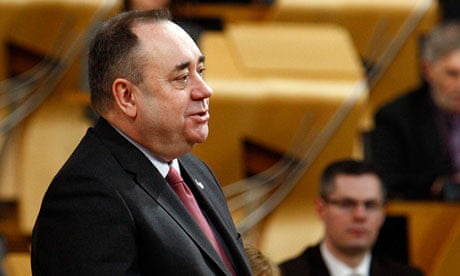
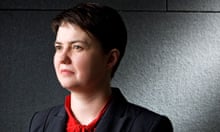
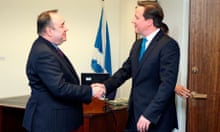

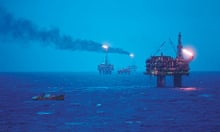
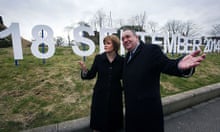
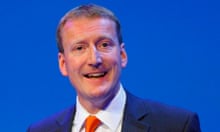
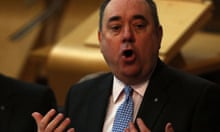
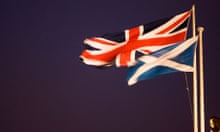
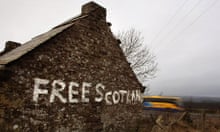
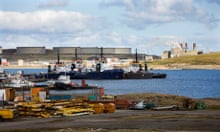
Comments (…)
Sign in or create your Guardian account to join the discussion